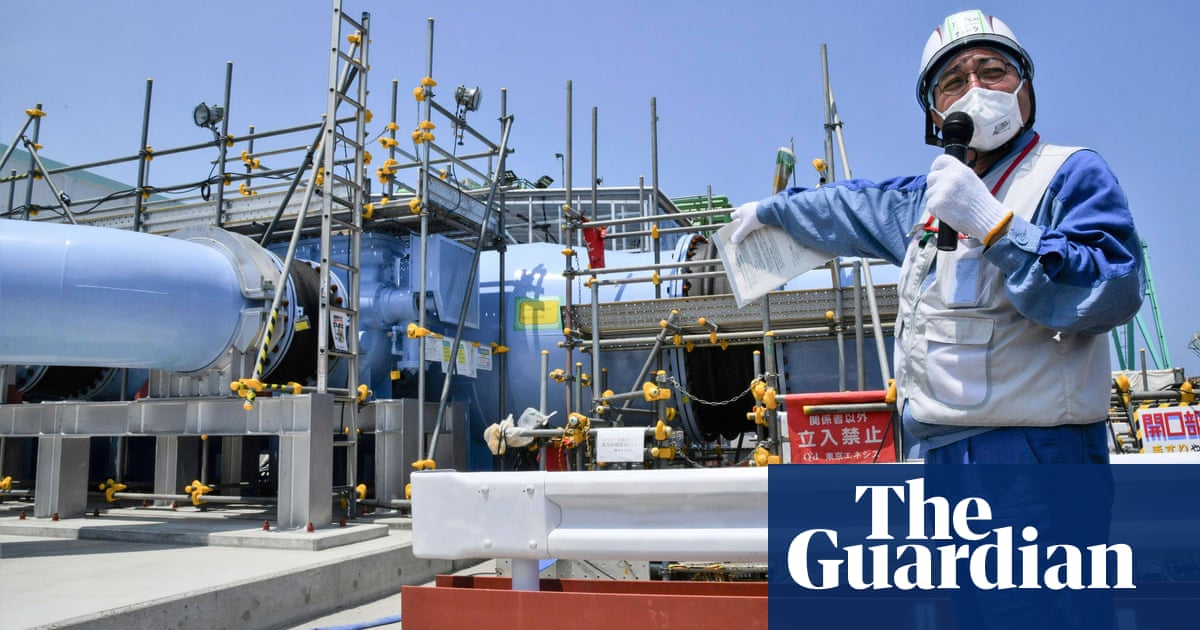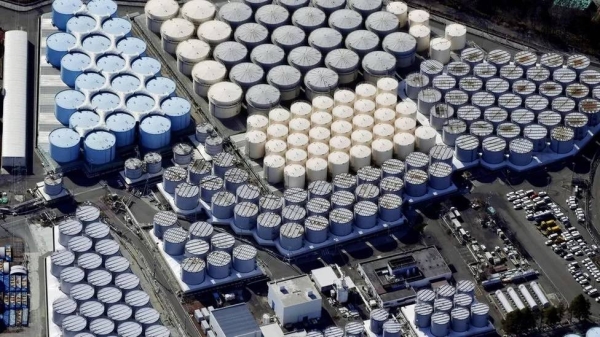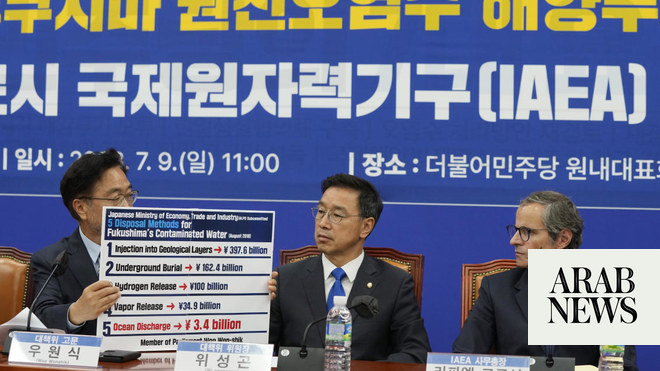
South Korea"s Foreign Ministry summoned a Japanese Embassy official Thursday to lodge a protest over Japan"s plan to discharge radioactive water from the crippled Fukushima nuclear power plant into the ocean, Yonhap cited officials as saying.
Lee Tong-q, the ministry"s director general for climate change, energy, environment and scientific affairs, expressed disapproval to Makoto Hayashi, minister plenipotentiary at the embassy in Seoul, over plans to start discharging the treated water into the sea by 2023 announced by Tokyo Electric Power Company (TEPCO), the operator of the plant, earlier this week.
Earlier this year, Japan announced what is considered to be decades long process, as all storage tanks at the nuclear plant are expected to be full as early as the fall of 2022.
The Japanese government on Tuesday approved plans to release more than 1 million metric tons (1.1 million US tons) of radioactive water from the damaged Fukushima nuclear plant into the ocean two years from now.
The controversial plan was approved following years of heated wrangling and despite concerns from neighboring countries.
The decision to release the water was taken in a meeting of Prime Minister Yoshihide Suga"s Cabinet, with the backing of the International Atomic Energy Agency (IAEA).
Japan"s Suga said that getting rid of the water was an "inevitable task" in the decades-long exercise of decommissioning the nuclear plant.
He added that the release will take place only "after ensuring the safety levels of the water" and alongside measures to "prevent reputational damage."
The operator Tokyo Electric Power Company (TEPCO) — which has more than 1,000 tanks at the site — is tasked with discharging the water.
TEPCO had claimed that the space for tanks would run out by 2022, although some officials and experts disagree.
Some scientists have pointed out that the long-term effects on marine life from low-dose exposure to such large amounts of material is not yet known.
Greenpeace"s senior nuclear specialist Shaun Burnie told DW that the Fukushima discharges could not be safe.
TEPCO and Japan plan to dilute the water until tritium levels are brought down to a level suitable for release.
"But other radioactive isotopes like Strontium 90, which could be released by these discharges, concentrates in the bones of both fish and humans, increasing cancer risks," Burnie said.
There has been strong local opposition to the move, and neighboring countries such as China have also expressed their concerns.
"China has expressed grave concern to the Japanese side through the diplomatic channel, urging Japan to handle the issue of wastewater disposal from the Fukushima nuclear power plant in a prudent and responsible manner," Beijing"s Foreign Ministry spokesperson Zhao Lijian said on Monday.
The decision comes a decade after the reactor at the Fukushima Daiichi Nuclear Power Station was wrecked in a meltdown following a tsunami in 2011. — Agencies












